【Chinese Name】: Japanese Teijin Gout Medicine
【Brand Name】: Feburiku
【Chemical Name】: Febuxostat
【Manufacturer】: Teijin Pharma Co., Ltd.
【Drug Specifications】: 10mg, 20mg, 40mg; tablets
【Introduction to Japanese Teijin Gout Medicine Feburiku】:
Regarded as the world's finest gout medication and the only one globally that imposes no burden on the kidneys, the highly effective Japanese Teijin Gout Medicine, Feburiku, targets the accumulation of uric acid caused by either excessive production or insufficient excretion. Uric acid crystal accumulation occurs in cartilage, soft tissues, kidneys, and joints. Deposits in the joints result in severe pain. It is a prescription medication for hyperuricemia.
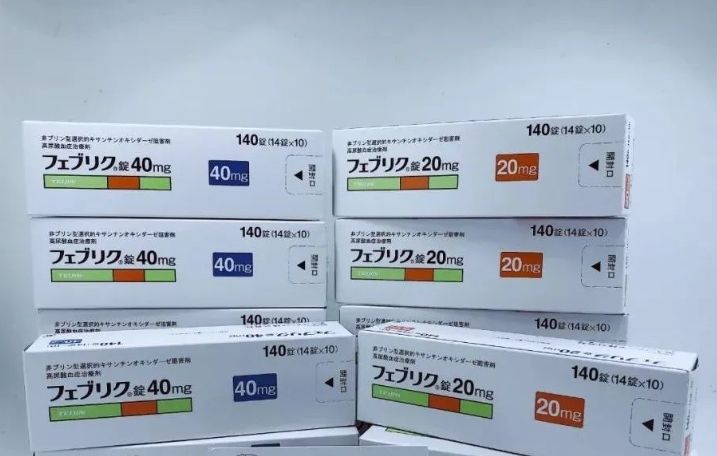
【Indications of Japanese Teijin Gout Medicine Feburiku】
Effective for gout or hyperuricemia.
【What is Gout?】
Gout is caused by the deposition of uric acid crystals in the body, known for its severe symptoms of pain. It is estimated that the number of patients worldwide has reached 15 million. Additionally, hyperuricemia with uric acid levels exceeding 7.0mg/dL is not only the cause of gout and urinary stones but may also lead to lifestyle-related diseases such as hypertension and diabetes, as well as conditions like myocardial infarction and stroke.
Due to changes in lifestyle habits, the number of patients with hyperuricemia has been increasing in recent years. With the aim of providing a new treatment option for hyperuricemia and contributing to medical progress, Teijin began researching new drugs and successfully developed Febuxostat, a novel drug worldwide for the past 40 years. Febuxostat can effectively reduce the risks associated with gout and hyperuricemia by stabilizing and controlling patients' uric acid levels.
Since 2009, Febuxostat has been marketed in approximately 40 countries, including the United States, Canada, various European countries, South Korea, Taiwan, and Japan. In the future, Teijin aims to expand its business in 117 countries/regions primarily in Asia, the Middle East, and South America (※2), with the goal of becoming a leading company in the field of hyperuricemia/gout treatment drugs worldwide, making Febuxostat synonymous with Teijin.
Hyperuricemia not only leads to gout but also increases the risk of arteriosclerosis and cardiovascular diseases when combined with lifestyle-related diseases and metabolic syndrome. Therefore, the importance of treatment is increasing day by day. With the goal of creating a world where more people can live with peace of mind, Teijin not only provides treatment options for patients but also offers correct information related to hyperuricemia.
【Clinical Results of Japanese Teijin Gout Medicine Feburiku】
A clinical trial was conducted comparing the effects with placebo (similar drug) in 171 hyperuricemia patients with uric acid levels of 0.9mg/dL. The results showed that after 16 weeks of starting the medication, 80% of the patients taking this medication had uric acid levels reduced to 6.0mg/dL. In contrast, less than 3% of patients taking placebo achieved this reduction. Compared to the relatively ineffective placebo, this demonstrates the significant effectiveness of this medication.
【Dosage and Administration of Japanese Teijin Gout Medicine Feburiku】
For adult patients, start with 10mg once daily, one tablet each time. After two weeks, increase to 20mg once daily. From the seventh week onwards, increase to 40mg once daily. The maximum dose should not exceed 60mg per day. Adjust according to the patient's condition.
【Warnings and Precautions for Japanese Teijin Gout Medicine Feburiku】
(1) Avoid simultaneous use with drugs for leukemia or immunosuppressants.
(2) Start with a small dose and increase to the second stage after a few weeks. Drink more than one cup of water when taking the medication.
(3) Take regularly every day regardless of whether gout is in an acute phase or not. Emergency use during an acute attack is ineffective and may even worsen the symptoms.
【Special Precautions for Specific Populations for Japanese Teijin Gout Medicine Feburiku】
People with severe kidney or liver disease should use it with caution.
These medicines come in three variations: 10mg, 20mg, and 40mg, all in new packaging. The Teijin Gout New Pack 100 pills are indicated for the treatment of gout and hyperuricemia.
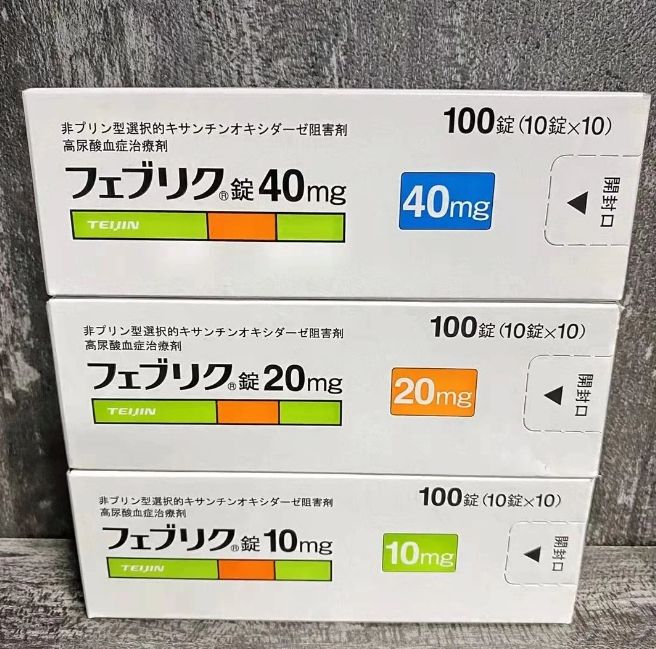
Gout is caused by the accumulation of uric acid crystals, resulting from either excessive production or insufficient excretion of uric acid. These crystals accumulate in cartilage, soft tissues, the kidneys, and joints, leading to severe pain when deposited in the joints.
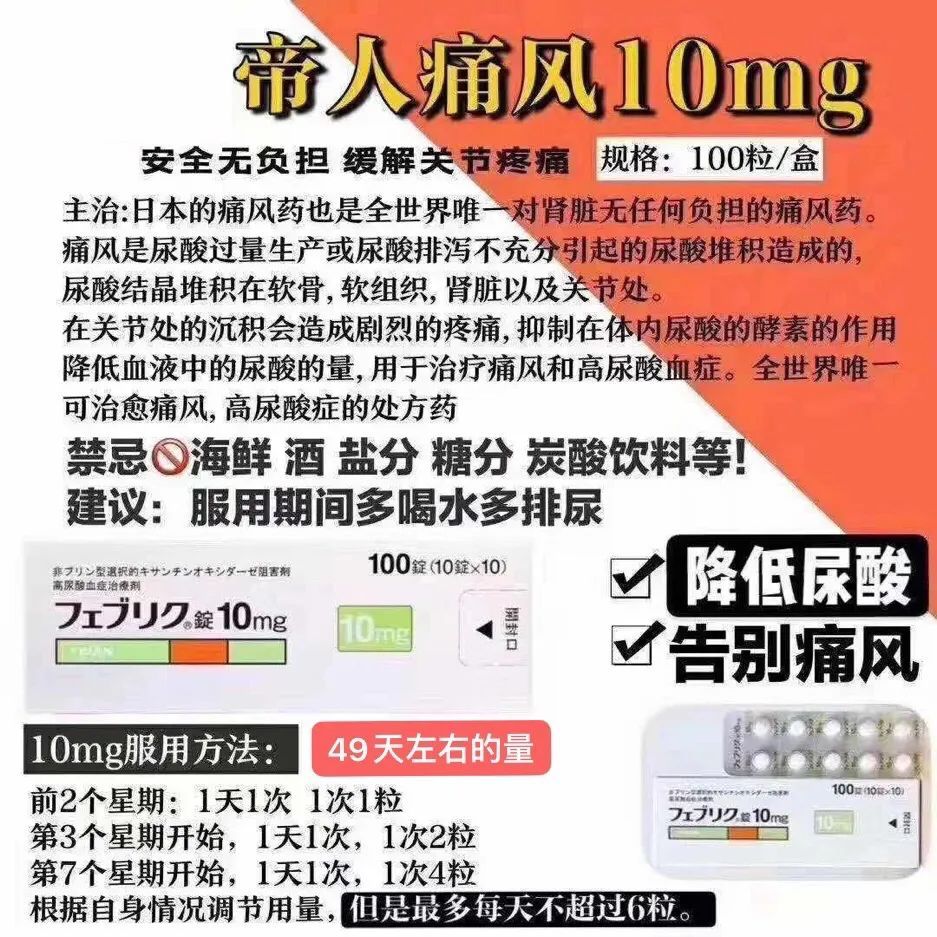
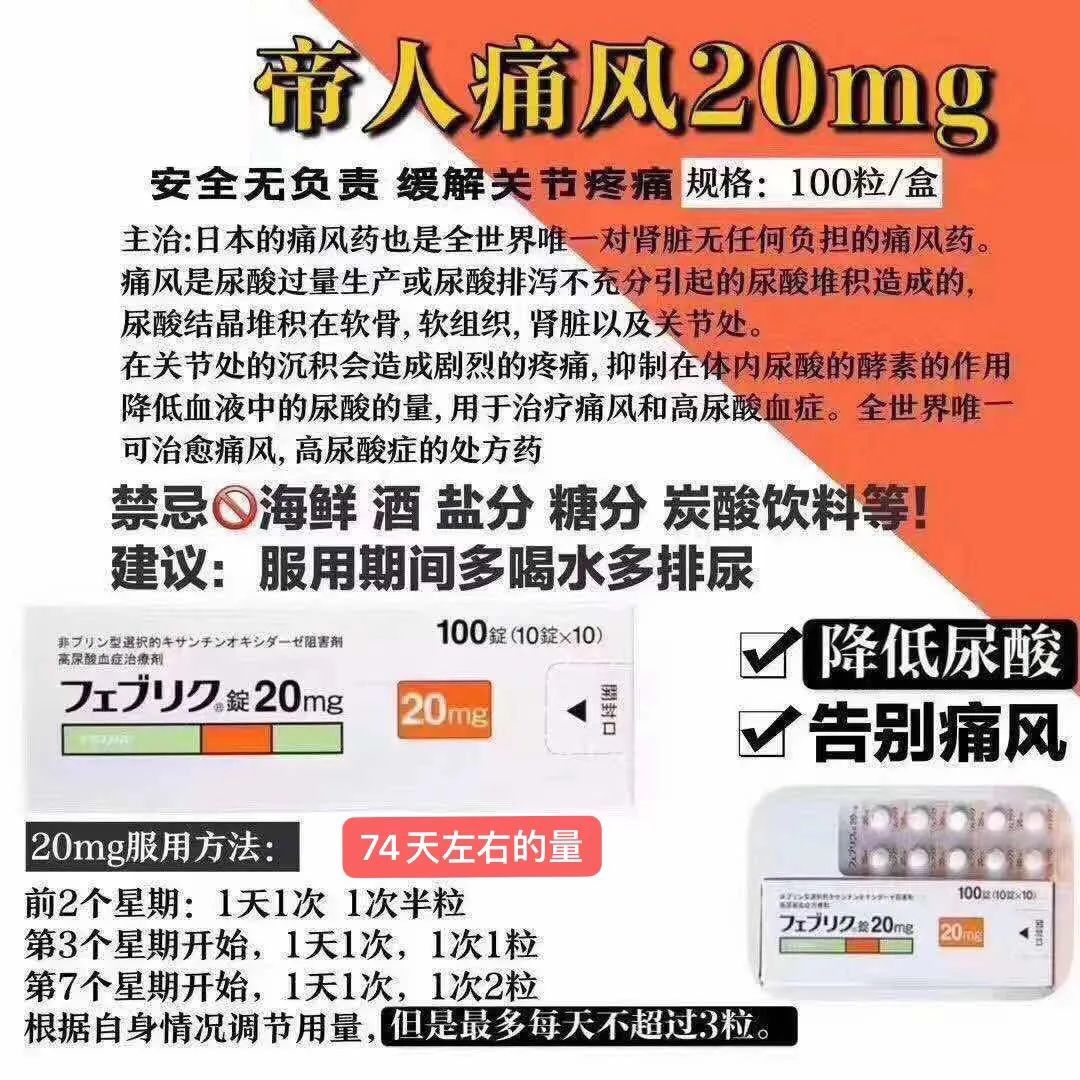
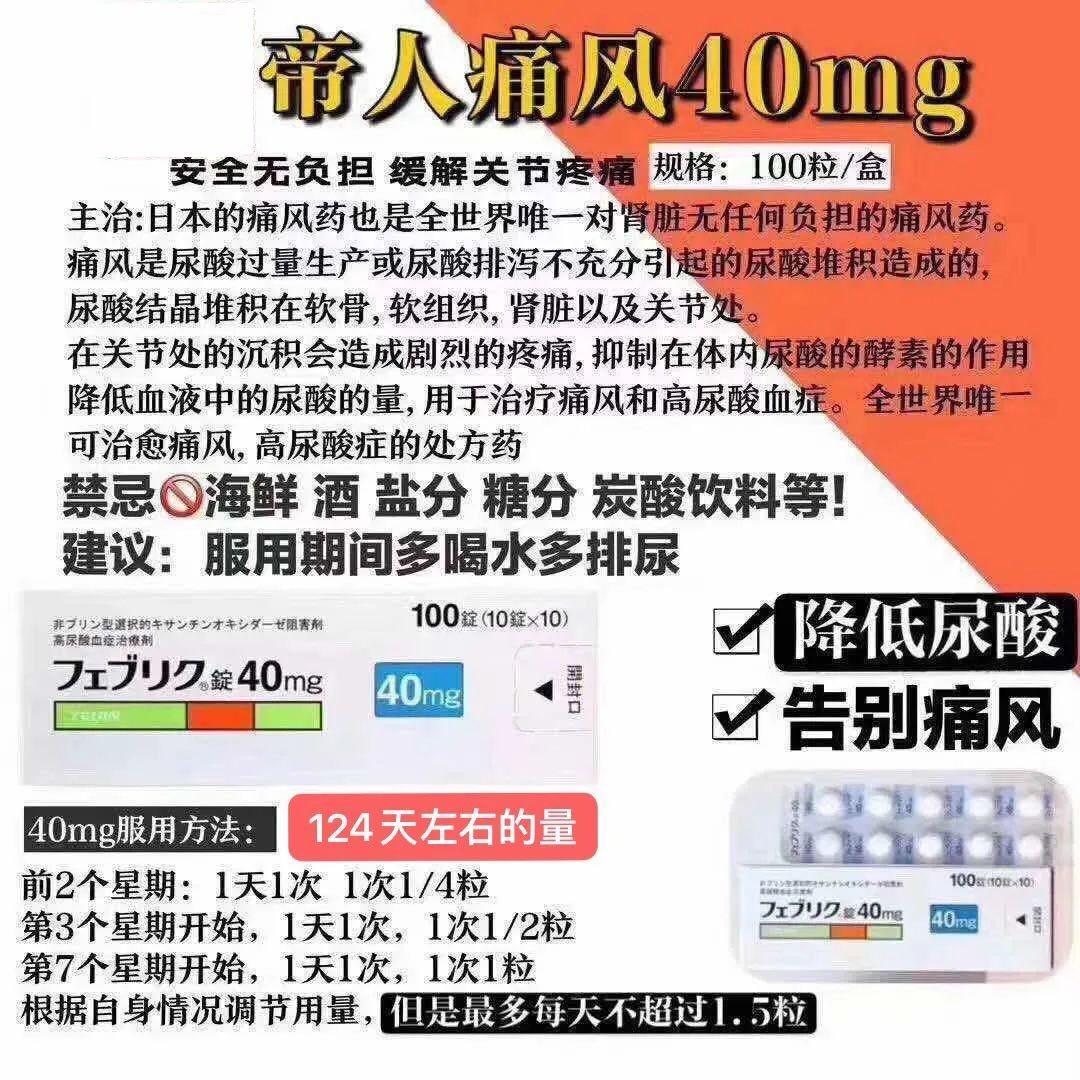
Japanese gout medication is the only one in the world that doesn't burden the kidneys. Gout is caused by excessive production or insufficient excretion of uric acid, resulting in uric acid crystal accumulation in cartilage, soft tissues, kidneys, and joints. Deposition in the joints leads to intense pain. This medication inhibits uric acid enzymes in the body, reducing uric acid levels in the blood, and is used to treat gout and hyperuricemia, the only medication in the world that can cure gout.
Contraindications: Avoid seafood, alcohol, salt, sugar, carbonated drinks, etc.
Recommendations: Drink plenty of water and urinate frequently during the course of treatment. Do not change or stop taking this medication during a gout attack (pain) without consulting a doctor! Gout attacks may also be influenced by weather conditions and other factors. Please follow the doctor's advice.
Understanding foods high in purines and controlling hyperuricemia
Foods are classified into four categories based on their purine content per 100g:
Category one: Foods rich in purines (>100mg/100g), including animal offal, meat broth, meat sauce, beer, shellfish, sardines, etc.
Category two: Foods with moderate purine content (50–100mg/100g), including most fish, poultry, and some legumes.
Category three: Foods with low purine content (25–50mg/100g), mainly beef, lamb, pork, chicken, shrimp, crab, cauliflower, spinach, green beans, mushrooms, peanuts, soybeans.
Category four: Foods with minimal or no purine content (<25mg/100g), including milk, eggs, cheese, refined rice, most fruits and vegetables, with apples, pears, grapes having low purine content, as well as tea, coffee, fruit juice, soda, chocolate, cocoa tea, rice, wheat, shark fin, sea cucumber, and butter, which have low purine content and can be consumed.
Individuals with high uric acid levels should generally avoid or consume minimal category one foods, consume more category four foods, and adjust category two and three foods based on uric acid levels, limiting purine intake to below 100–150mg per day.
